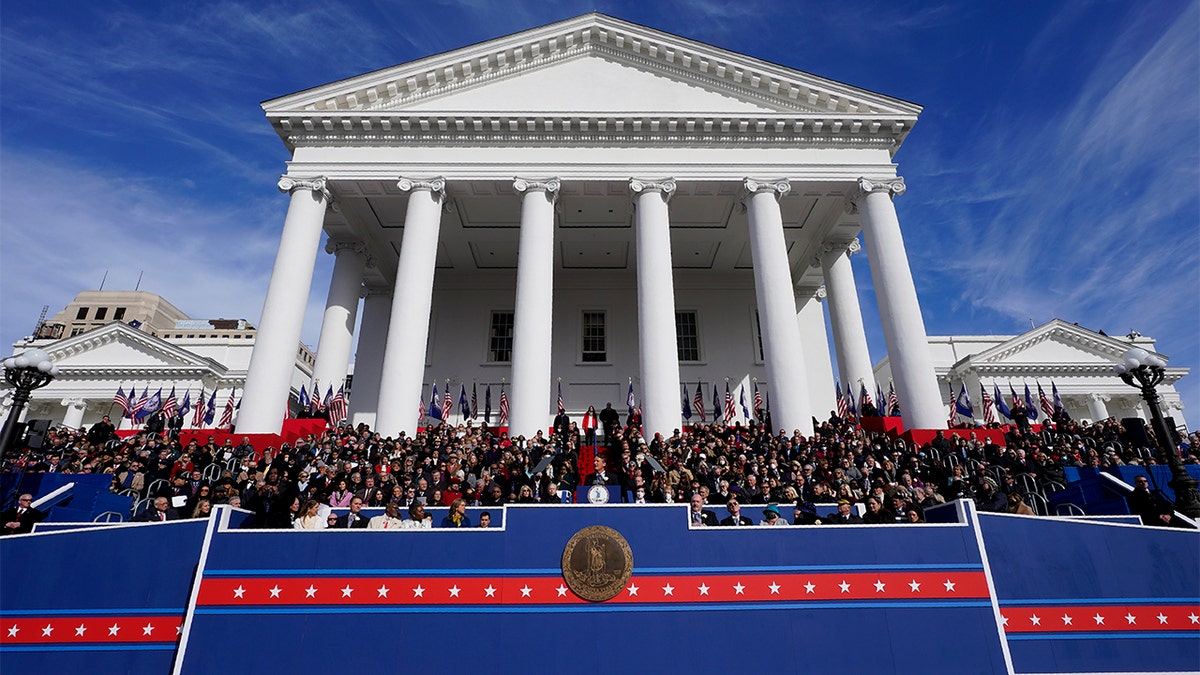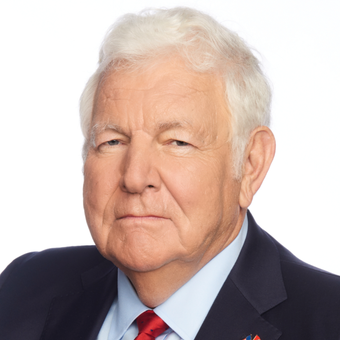Bill Bennett: Parents will win 'intense' fight with teachers over school curriculum
Former Secretary of Education Bill Bennett weighs in on critical race theory and its possible effects on schools.
After taking the oath of office last week, Virginia Gov. Glenn Youngkin made good on his campaign promise by issuing an executive order banning critical race theory in the state’s schools. The governor’s various orders have drawn some criticism, but before rushing to judge the order, consider how we got to this point both in Virginia and across the country.
Youngkin was elected in November, in part, because he pledged to bring common sense pragmatism to the state. He said there should be no room for intolerance or discrimination in our classrooms or the public discourse.
That message helped carry large swaths of independent and moderate voters, notably suburban moms, tipping the scales in a close election.
GLENN YOUNGKIN IS OFF TO A STRONG START ON SCHOOLS IN VIRGINIA
Legislation is an important tool to stamp out intolerance in our schools. Even more decisive, however, is the culture in our classrooms.
When a teacher expresses a partisan attitude or conveys partiality, something as little as an off-hand comment – "Your White privilege is showing," or "I would expect that answer from someone like you" – can discourage students from forming independent thought. But, of course, you cannot legislate all behavior. Those changes start with school leaders, parents and teachers who together set the ethos of a school.
Critical race theory was a flashpoint in Virginia, as it has been across much of the country. This school of thought and the phrase has become the poster child of a decades-long trend of curricula and textbooks that obsess over America’s failings and steer away from its exceptionalism.
Yet, for all the hullabaloo, critical race theory itself remains widely misunderstood, which has produced a great deal of knee-jerk policymaking. Liberals have argued that critical race theory is not taught in classrooms, and for the most part that’s true.
Youngkin’s executive order takes an approach that brings us closer to true conservative values in three ways.
It happens to be a legal theory advocated most fervently by extremist professors. However, examples from Virginia’s Loudoun County and other school districts, where "anti-racism" doctrines have been incorporated into teacher training and lesson plans, lay bare the dangers of poor-quality programs, implemented badly, that draw from the tenets of critical race theory.
Such programs create destructive and divisive heat while offering no light – things that should have no place in our schools. In response, many Republican-controlled state houses have or are rushing to pass legislation meant to protect students from such practices and restore a more objective, honest recounting of the United States’ history – the whole and true story.

Gov. Glenn Youngkin speaks during his inauguration ceremony, Saturday, Jan. 15, 2022, in Richmond, Virginia. (AP Photo/Steve Helber)
As Youngkin wrote, "both the good and the bad." Yet in their haste, these efforts frequently miss the mark, at times to the detriment of solid fundamental conservative principles.
Many books that promote traditional values could be subject to attack under the broad and vague provisions of these new laws. While well-intentioned, the worst of these bans threaten to suppress discussion of important historical and cultural issues, micromanage local teachers from distant state houses, and potentially prohibit appropriate content just because it makes some students feel uncomfortable.
For example, one complaint referenced students’ feelings about Norman Rockwell’s classic "The Problem We All Live With" painting depicting 6-year-old African American student Ruby Bridges being escorted by U.S. marshals into an all-White school in 1960. That is a picture that should be discussed at an age-appropriate level.
By and large, these laws are not needed.
In Montana and Arkansas, for example, the state attorneys general investigated critical race theory and found that if it, or any other such ideology, were actually being forced on students, that would violate the long-standing application of the Civil Rights Act of 1964 – a conclusion that Youngkin’s executive order reinforces and builds upon.
What’s more, local school boards, educators and parents should be the conservators of our classrooms, not politicians in Washington or the state Capitol.
By contrast, Youngkin’s executive order takes an approach that brings us closer to true conservative values in three ways:
CLICK HERE TO GET THE OPINION NEWSLETTER
First, it affirms that encouraging any form of racial discrimination in our schools – by any name or title – has been unlawful since the Civil Rights Act of 1964.
Second, it empowers parents with better transparency into instructional materials.
Third, it acknowledges that we must equip teachers with professional development resources so they can better prepare students to evaluate, analyze and think critically on difficult or controversial topics; to question and verify the credibility of sources; and to make informed judgments – all without imposing the teacher’s personal beliefs. All the while recognizing that most of what is taught in schools is noncontroversial.
CLICK HERE TO GET THE FOX NEWS APP
Youngkin’s executive order incorporates key elements of a conservative approach to these important issues. Incorporated wisely, conservative principles will prove a winning formula to provide high-quality education to our young people, for it is they who will write the next chapter of our nation, which remains the world’s last best hope.
Youngkin is now the steward of Virginia’s future. May his tenure help move us all toward sensible, principled conservative education policy.





